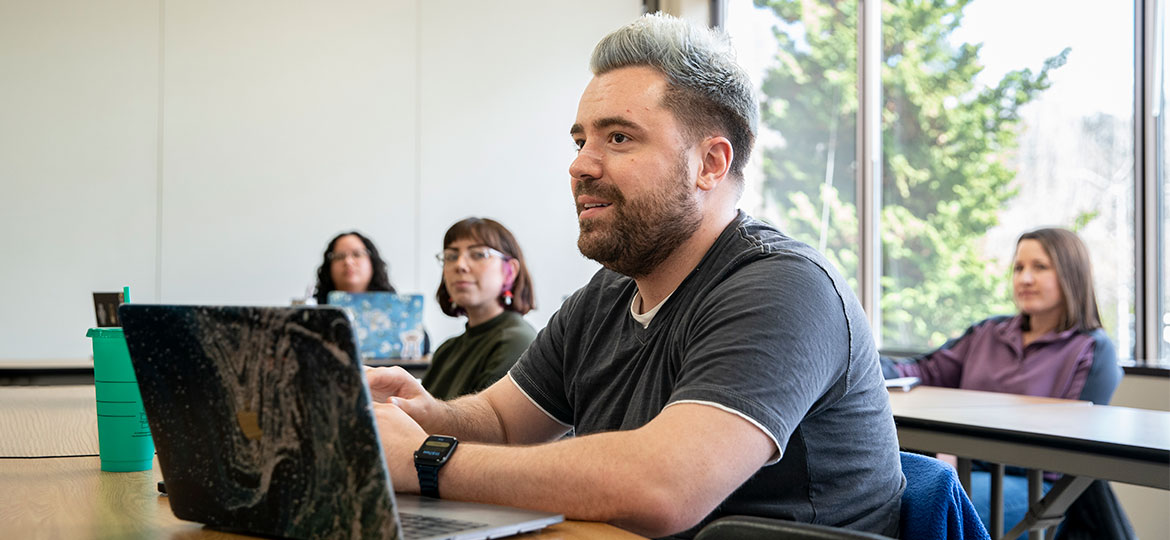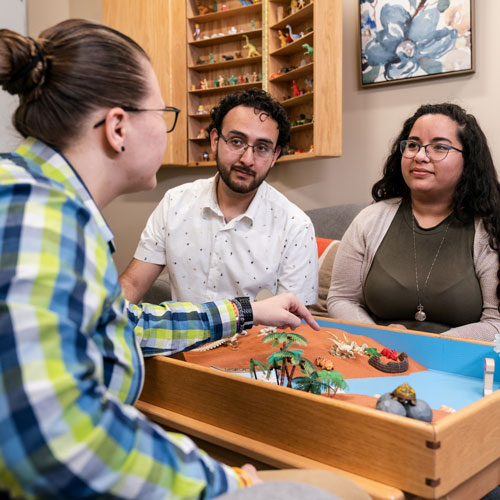
Programs
You’ve determined counseling is the career for you, but perhaps you’re unsure of what that could look like – or even what discipline within the profession you wish to pursue.
It can be a difficult process to navigate, but here we provide an overview of each of the counseling programs we offer, along with information on what to expect for each career path.
Licensed Professional Counselor
Licensed Professional Counselors (LPC) focus on one-on-one therapy and group therapy for adults, helping them heal, grow and thrive. They may provide therapy in their own private practice, or as part of a group practice, and work in a variety of settings, including:
- Community mental health centers
- Human service agencies
- Hospitals and medical clinics
- Health care organizations
- Schools and universities
- Veteran service centers
- Correctional facilities
- Residential treatment homes
- Community or faith-based nonprofits or rehabilitation centers
The MA in Clinical Mental Health Counseling (CMHC) program is designed to prepare you to sit for the national licensure exam to become an LPC in Oregon.
This 60-credit program takes two to four plus years to complete depending on your prefered curriculum plan and Degree Route Guide.
Note: Students may deviate from this guide. It is important to remain in close communication with your faculty academic advisor.
Classes are available digitally and in-person at our Portland Center.
Licensed Marriage & Family Therapist
Licensed Marriage & Family Therapists (LMFT) specialize in providing counseling for children, families and couples across the life cycle. They provide therapy to clients through work at community agencies, mental health centers, nonprofits, or with county and state services. Other marriage and family therapists see clients through their own private or group practice.
Therapists work in settings that include:
- Community agencies and nonprofits
- Mental health clinics and centers
- Private practice
- Group practice
- County and state services

The MA in Marriage, Couple and Family Counseling (MCFC) program will prepare you to sit for dual licensure to become an LPC and an LMFT. The LPC and LMFT require a national licensure exam for the state of Oregon. The opportunity to earn dual licensure is a unique and valuable feature of MCFC program.
This 64-credit program takes two to four plus years to complete depending on your prefered curriculum plan and Degree Route Guide.
Note: Students may deviate from this guide. It is important to remain in close communication with your faculty academic advisor.
Classes are available digitally and in-person at our Portland Center.

School Counselor
School counselors hold the dual role of educational leader and mental health professional in their school and are focused on the social-emotional, academic and career development of all students. They interact with students in multiple ways: classroom lessons for all students, small groups for many students and one-on-one counseling for some students.
School counselors collaborate and consult with other school staff and perform proactive work for the school community as a whole, often centered on equity, school climate or mental-health initiatives.
The MA in School Counseling program sets students on the path for preliminary Oregon K-12 school counselor license upon graduation.
This program takes two to four plus years to complete depending on your curriculum plan and whether you are a Track I (60 credits) or Track II (63 credits) student. We also offer a licensure-only Certificate in School Counseling that is generally two years in length, with 32 semester hours of coursework required as a minimum for graduation.
Note: Students may deviate from this guide. It is important to remain in close communication with your faculty academic advisor.
Classes are available in-person at our Portland Center.

Trauma Counselor
For those who wish to provide safe and effective care for individuals and communities prior, during, and after traumatic events, we offer a Trauma Counseling Certificate through our Trauma Response Institute.
This 12-hour specialty comprises didactic and experiential courses reflecting best practices in trauma response, PTSD prevention and intervention strategies. The curriculum allows you to progress through the specialty in two or more years. Classes are taken online in a remote, synchronous format, with the possibility of in-person portions.
The certificate is available to graduate students in a mental health, education, ministerial or medical degree program, or a postgraduate with a master’s degree or above in mental health, education, ministry or medicine.